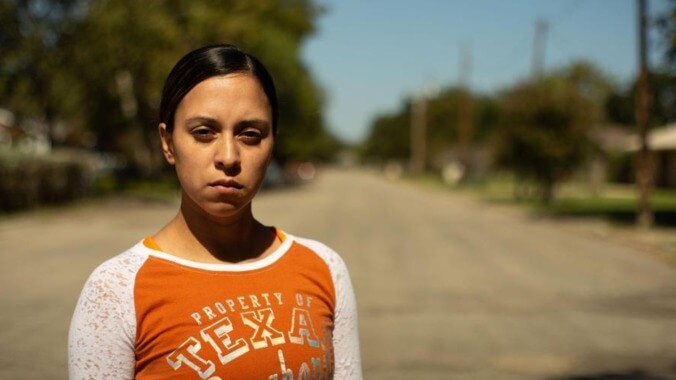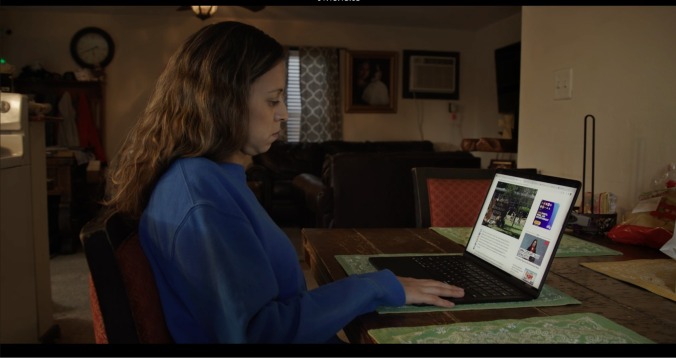In ‘Uvalde Mom,’ the Failures of Law Enforcement Get Reexamined
"I saw a similarity in Angeli's life and the systems that have been failing the community for years before the shooting," award-winning documentary filmmaker Anayansi Prado told Jezebel.
Photo: Photo by Caleb Kuntz, Courtesy of Sanarte Films EntertainmentMoviesPolitics
Nearly three years have passed since 19 students and two adults were killed by a gunman at Robb Elementary School in Uvalde, Texas. It was the deadliest school shooting the United States had seen since Sandy Hook Elementary in 2012, which left 26 dead. Today, American children have been made no safer from firearms. And that’s hardly the bleakest truth about gun violence. Anyone impacted by mass shootings—one in 15 people, according to a recent study—knows that the real story doesn’t begin with a breaking news alert, but after the public begins to forget.
Typically, corporate media serves as the narrator of these stories. But in award-winning documentary filmmaker Anayansi Prado’s new film, Uvalde Mom—which premiered this week at SXSW—it’s a farm worker and single mother of two, Angeli Rose Gomez. If Gomez’ name sounds familiar, it’s likely because she garnered international attention defying law enforcement to run into Robb Elementary School and rescue her two young sons herself as the gunman remained undeterred by the some 400 officers on the scene. Gomez was instantly lauded by many for her bravery—but a number of people (especially law enforcement) defamed her, doubting her motivations and dissecting her past. Local police’s disturbing harassment of her culminated in an undue jail stay. Prado, who began filming in September 2022, was there to document it all.
“When I met Angeli, I already knew that she had gone viral on social media, but what really captured me was learning about her past—growing up in Uvalde, this very promising life she had, how she was initiated into the criminal justice system,” Prado told Jezebel over Zoom with Gomez. “I saw a similarity in Angeli’s life and the systems that have been failing the community for years before the shooting. That’s the story that I really wanted audiences to see…that the system’s failures can change the community’s life forever and impact a person’s life for a lifetime.”

Angeli Rose Gomez at her home.
As Uvalde Mom makes abundantly clear, Gomez was a survivor of the system long before her two sons’ lives were ever put in peril on May 24, 2022. As a young girl in Uvalde, she dreamed of becoming a police officer like her grandfather. But when law enforcement failed to intervene as she was physically abused by her children’s father, Gomez saw the criminal justice system not as a place of protection, but of passivity and patriarchal authority.
-

-

-

-

-

-

-

-

-

-

-

-

-

-

-

-

-

-

-

-

-

-

-

-

-

-

-

-

-

-

-

-

-

-

-

-

-

-

-

-








































